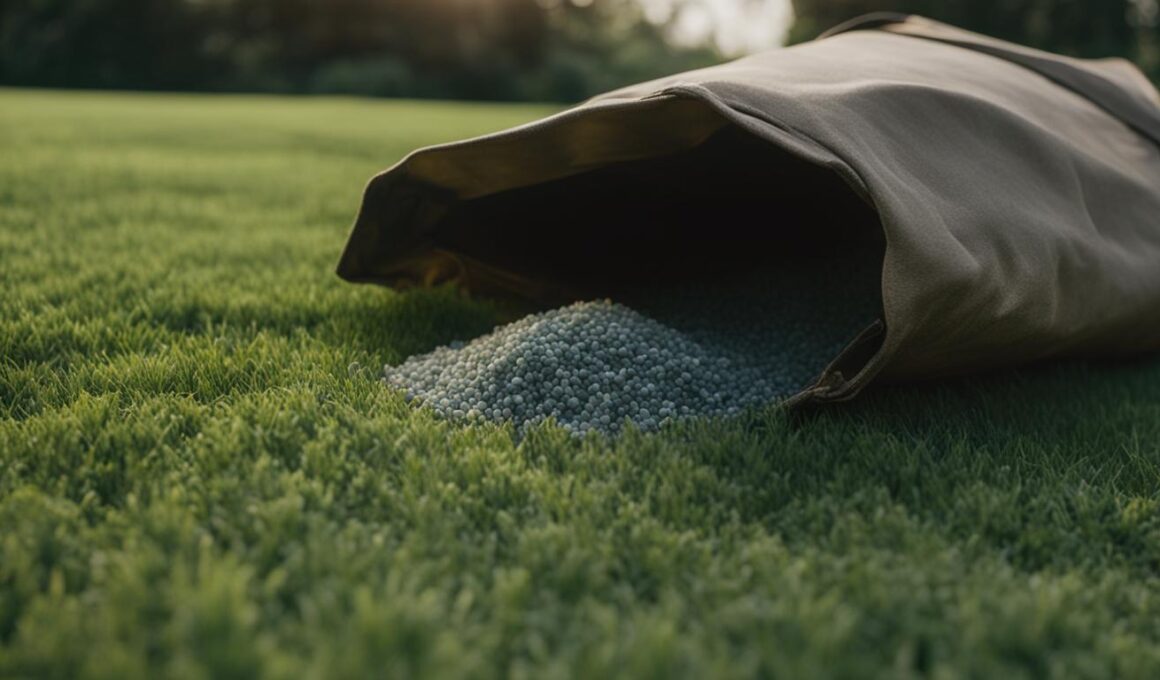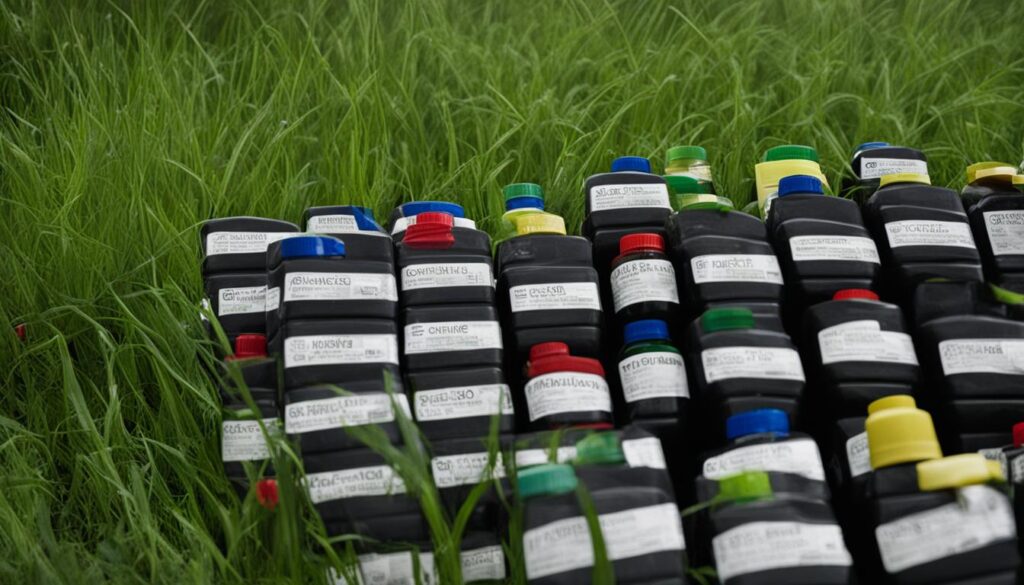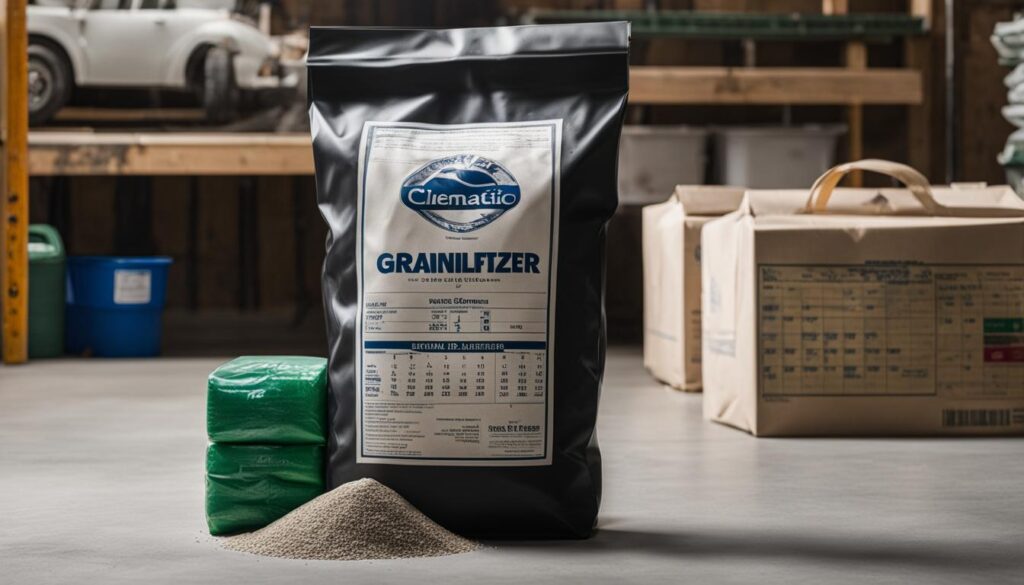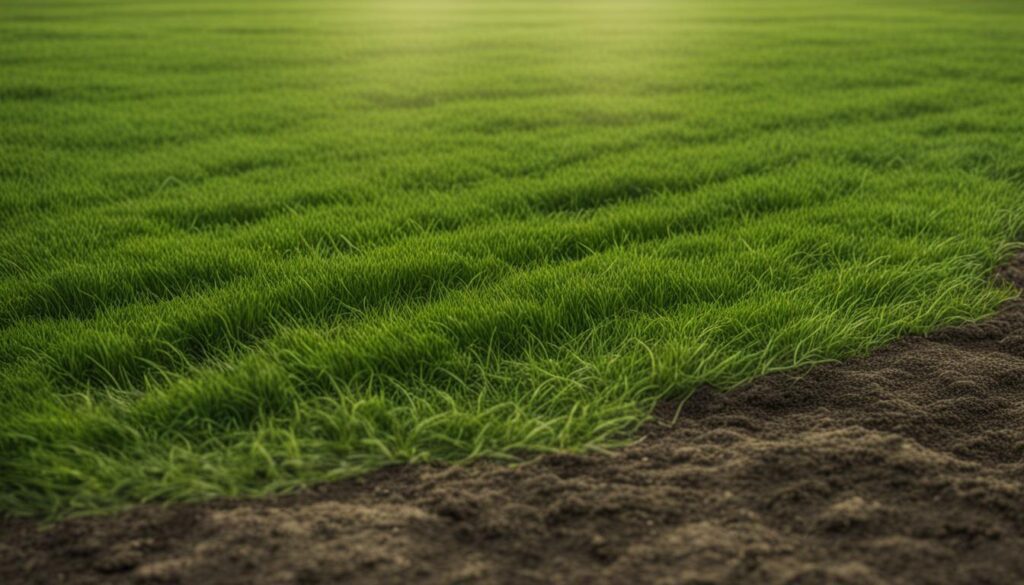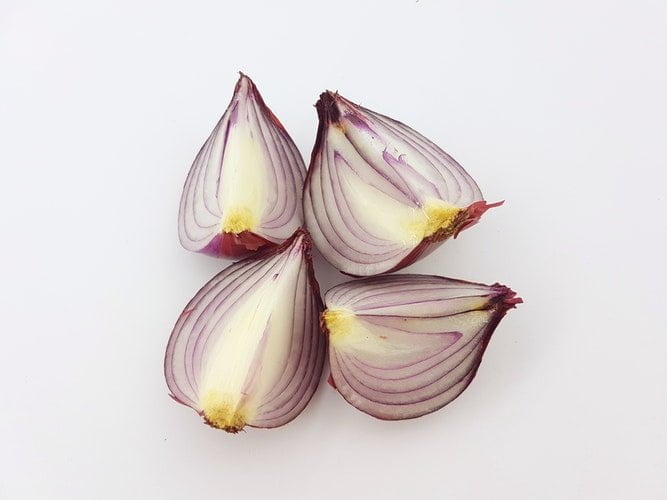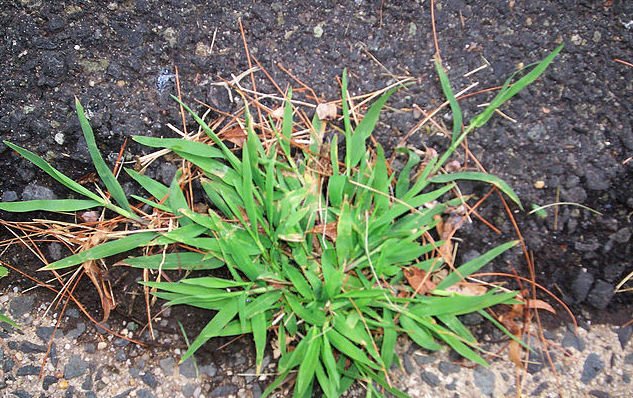Fertilizer is essential for maintaining a healthy and green lawn. However, it’s important to understand the shelf life and storage methods of different types of fertilizers. In this comprehensive guide, we will explore the shelf life of liquid and granular fertilizers, the expiration of lawn fertilizer, the impact of moisture on fertilizers, the longevity of fertilizers in the soil, and proper fertilizer storage methods.
Post Summary
- Fertilizer shelf life varies depending on the type, with organic liquid fertilizers lasting a couple of years and synthetic liquid fertilizers lasting up to 8 to 10 years.
- Granular fertilizers have a longer shelf life compared to liquid fertilizers and can remain effective for many years if stored properly.
- Lawn fertilizers do not have a defined expiration date but the potency of the nutrients may decrease over time.
- To ensure long-lasting effectiveness, consider your lawn’s specific needs, conduct soil testing for accurate nutrient requirements, and follow proper timing and storage guidelines.
- Proper storage methods, such as keeping fertilizers dry and in sealed containers, are crucial in maintaining their efficacy.
Liquid Fertilizer: Organic vs. Synthetic
When it comes to liquid fertilizers, there are two primary types to consider: organic and synthetic. Both types have their benefits and drawbacks, including differences in shelf life and potency.
Organic Liquid Fertilizer
Organic liquid fertilizers, such as fish emulsion or compost teas, are derived from natural sources and contain essential nutrients for plant growth. These fertilizers are beloved by organic gardeners for their environmentally friendly nature. However, they do have a shorter shelf life compared to synthetic options. Organic liquid fertilizers can lose their potency within a couple of years, so it’s important to use them while they are still effective.
Despite their shorter shelf life, organic liquid fertilizers offer long-term benefits to the soil. Over time, they enhance soil fertility and promote overall plant health. Their slow-release nature ensures that nutrients are made available to plants gradually, allowing for sustained growth and development.
Synthetic Liquid Fertilizer
Synthetic liquid fertilizers, on the other hand, are formulated with chemical compounds that provide a quick and immediate nutrient boost to plants. These fertilizers are often highly concentrated and offer a longer shelf life compared to organic options. When stored correctly, synthetic liquid fertilizers can last up to 8 to 10 years.
While synthetic liquid fertilizers may not have the same long-term benefits for soil health as organic options, they can provide quick and effective results when needed. They are particularly useful for addressing specific nutrient deficiencies or promoting rapid growth during certain stages of plant development.
Ultimately, the choice between organic and synthetic liquid fertilizers depends on personal preferences and gardening goals. Whether you prioritize long-term soil health or immediate results, understanding the shelf life and potency of each type will help you make an informed decision for your lawn and garden.
| Type of Liquid Fertilizer | Shelf Life | Potency |
|---|---|---|
| Organic | Up to a couple of years | Slow-release, enhances soil fertility over time |
| Synthetic | Up to 8 to 10 years | Quick-release, immediate results |
Granular Fertilizer and Its Shelf Life
Granular fertilizers are a popular choice for lawn care due to their long shelf life and slow-release properties. They are available in various types, including organic and inorganic options, each with its unique benefits. The shelf life of granular fertilizer can range from a few years to several years, depending on the type and storage conditions.
One of the advantages of granular fertilizer is its slow-release feature. These fertilizers are designed to gradually release nutrients over an extended period, providing a sustained source of nutrition for your plants. This slow-release characteristic not only ensures long-lasting effectiveness but also reduces the risk of over-fertilization, which can harm the lawn.
To maximize the shelf life of granular fertilizers, proper storage is crucial. Moisture absorption is one of the main factors that can diminish the effectiveness of granular fertilizers. It is important to keep them in a sealed container or bag to prevent moisture from entering. Storing the fertilizer in a dry and cool location, away from direct sunlight, is also recommended. This way, you can maintain the quality and potency of the granular fertilizer over an extended period.
The Types of Granular Fertilizer
There are two main types of granular fertilizer: organic and inorganic. Organic granular fertilizers are derived from natural sources such as plant and animal by-products. These fertilizers are rich in organic matter and release nutrients slowly, providing long-term benefits to the soil and plants. Inorganic granular fertilizers, on the other hand, are manufactured using synthetic chemicals. They are typically high in nutrient content and provide quick results.
Table: Comparison of Organic and Inorganic Granular Fertilizers
| Aspect | Organic Granular Fertilizer | Inorganic Granular Fertilizer |
|---|---|---|
| Nutrient Release | Slow-release | Quick-release |
| Longevity | Lasts for several years | Lasts for several months |
| Soil Health | Improves soil fertility and structure | Provides immediate nutrient availability |
| Environmental Impact | Environmentally friendly | Potential for water pollution if used excessively |
As shown in the table above, organic granular fertilizers have a longer shelf life compared to inorganic fertilizers. They also offer additional benefits for soil health and have a lower environmental impact. However, the choice between organic and inorganic granular fertilizer ultimately depends on your specific lawn care needs and preferences.
By understanding the shelf life, types, and proper storage methods of granular fertilizers, you can ensure their long-lasting effectiveness in maintaining a healthy and vibrant lawn. Whether you choose organic or inorganic, the slow-release properties of granular fertilizers provide a steady supply of nutrients to your plants, promoting healthy growth and lush green lawns.
Lawn Fertilizer and Its Expiration
When it comes to maintaining a healthy and lush lawn, choosing the right fertilizer is crucial. But have you ever wondered about the expiration of lawn fertilizer? Understanding the expiration of lawn fertilizer is essential for ensuring its effectiveness and providing your grass with the nutrients it needs.
Types of lawn fertilizer:
- Organic fertilizers: Made from natural sources such as compost, manure, or bone meal, organic fertilizers release nutrients slowly and improve the overall health of the soil.
- Synthetic fertilizers: These fertilizers are manufactured chemically and provide quick results. They contain specific nutrient ratios tailored to the needs of different types of grass.
The nutrient ratios and timing of fertilization vary depending on the type of grass you have. Warm-season grasses, such as Bermuda grass or Zoysia grass, require fertilization during the growing season, typically from late spring to early fall. However, cool-season grasses, like Kentucky bluegrass or fescue, benefit from fertilization in early spring and early fall.
Fertilizer Expiration and Storage:
Lawn fertilizers do not have a defined expiration date, but their potency can decrease over time if not stored properly. Exposure to moisture, extreme temperatures, and sunlight can accelerate the degradation of fertilizer. To ensure the longevity of your lawn fertilizer, follow these storage tips:
- Keep the fertilizer in a sealed container to protect it from moisture.
- Store it in a cool, dry place away from direct sunlight.
- Check the label for any specific storage instructions from the manufacturer.
By understanding the expiration of lawn fertilizer and selecting the right type of fertilizer for your grass, you can maintain a healthy and vibrant lawn throughout the year. Remember to follow the recommended nutrient ratios and timing of fertilization specific to your grass type, and store your fertilizer properly to ensure its effectiveness.
| Type of Grass | Timing of Fertilization |
|---|---|
| Warm-season grasses | During the growing season: late spring to early fall |
| Cool-season grasses | Early spring and early fall |
Your Guide to Long-Lasting Fertilizer for a Healthy Lawn
Fertilizer plays a crucial role in keeping your lawn healthy and vibrant. To ensure optimal fertilization, it’s essential to have a comprehensive lawn fertilizer guide. By following these tips and guidelines, you can achieve lush, green grass that will be the envy of your neighborhood.
One of the first steps in achieving optimal fertilization is conducting a soil test. This will help you determine the specific nutrient requirements of your lawn. Based on the results, you can choose the right fertilizer with the appropriate nutrient ratios to address any deficiencies and promote healthy growth.
Proper timing is also key to long-lasting fertilizer effectiveness. For warm-season grasses, it is best to apply fertilizer in late spring or early summer, when the grass is actively growing. Cool-season grasses, on the other hand, benefit from fertilization in the early fall or spring. By timing your applications correctly, you can maximize the absorption of nutrients and minimize waste.
In addition to timing, proper storage of fertilizer is essential for maintaining its longevity. Store your fertilizer in a cool, dry place, away from moisture and extreme temperatures. Use sealed containers to prevent clumping and preserve the potency of the nutrients.
FAQ
What is the shelf life of liquid fertilizers?
Organic liquid fertilizers may lose potency within a couple of years, while synthetic liquid fertilizers can last up to 8 to 10 years if stored correctly.
How long do granular fertilizers remain effective?
Granular fertilizers have a longer shelf life compared to liquid fertilizers and can remain effective for many years if stored properly.
Do lawn fertilizers expire?
Lawn fertilizers do not have a defined expiration date, but the potency of the nutrients may decrease over time.
What are the differences between organic and synthetic liquid fertilizers?
Organic liquid fertilizers, such as fish emulsion or compost teas, enhance soil fertility over time. Synthetic liquid fertilizers provide quick and effective results.
How should I store my fertilizers?
Proper storage, such as keeping the fertilizer dry and in a sealed container, is essential to prevent clumping, nutrient leaching, and premature release of nutrients.
What are the types of lawn fertilizers?
There are various types of lawn fertilizers, including organic and synthetic options, each tailored to specific grass types and nutrient requirements.
How often should I fertilize my lawn?
The frequency of fertilization depends on the specific needs of your lawn, which can vary based on factors such as grass type and desired growth rate.
Should I conduct a soil test before applying fertilizer?
Yes, conducting a soil test can provide valuable information about the nutrient levels in your soil and help determine the appropriate fertilizer application.
What are warm-season and cool-season grasses?
Warm-season and cool-season grasses refer to different types of turfgrass that thrive in specific climate conditions.
How can I achieve a healthier and greener lawn?
By understanding the shelf life of fertilizers, selecting the right type of fertilizer for your grass, following proper timing and storage guidelines, and conducting soil tests, you can ensure the long-lasting effectiveness of your fertilizer and achieve a healthier, greener lawn.
Does the Dissolving Time of Granular Fertilizer Affect its Effectiveness on Grass?
The dissolving time of granular fertilizer can impact its effectiveness on grass. It is important to consider how long fertilizer dissolves as this directly affects nutrient availability to the grass. A slower dissolving time may result in delayed growth, while a faster dissolving time could lead to runoff and waste.





